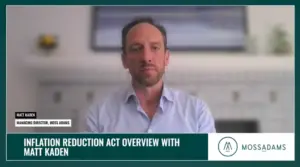ChargeExpo 2024: How Advanced Conductors Can Enhance EV Infrastructure and Revolutionize the Energy Sector
The U.S. power grid is struggling, and it’s no wonder why: The aging grid was not built for a time when clean energy sources would begin to replace fossil fuels. With an increasing number of Americans expected to switch to electric vehicles in the coming years, the need to decarbonize the power grid and enhance electric vehicle (EV) infrastructure is urgent. Innovative solutions, like advanced conductors that promise to revolutionize the energy sector, are the need of the hour.
But what challenges do we face in integrating these advanced conductors into our existing infrastructure, and how can we overcome them to ensure a sustainable energy future? Daniel Litwin, the Voice of B2B at MarketScale, sat down with Dr. Jason Huang, the founder of TS Conductor, on the show floor of ChargeExpo 2024 to gain insights into the future of the energy sector. As the official media partner of the event, MarketScale had the privilege of engaging in a thought-provoking conversation with Dr. Huang.
The duo delved into several key topics:
- The critical role of advanced conductors in the energy transition, enabling the integration of renewable energy sources into the grid.
- The challenges of modernizing the aging power grid infrastructure to accommodate the increasing demand for electricity and the shift towards EVs.
- Strategies for overcoming institutional and regulatory barriers to the adoption of advanced conductor technology for grid decarbonization.
Dr. Jason Huang, with his extensive background in engineering and commitment to sustainable energy solutions, brings a wealth of knowledge to the table. As the founder of TS Conductor, he is at the forefront of developing advanced conductors that are poised to play a pivotal role in the energy transition.
Article written by MarketScale.






